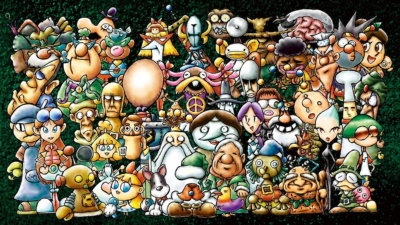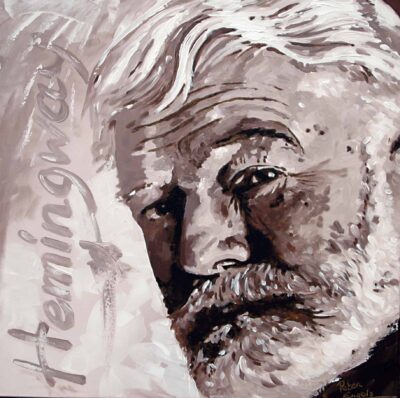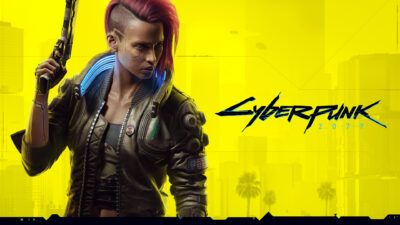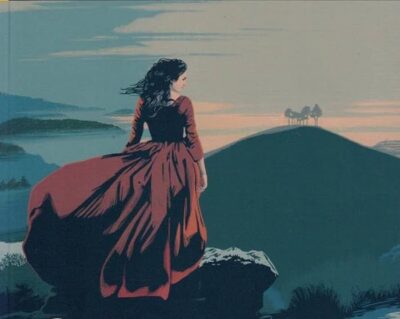Above is a painting that has nothing to do with the characters that I am introducing. However, this painting is something that depicts fear. Moreover, it is zoomed in, this is not the full image. I think it’s brilliant to zoom in because that circles back to the point I am going to make. There is more to the picture just like there is more to complex characters and their actions. They may not even be considered complex, some may be considered just misunderstood. Just like the image, behind all the complexity and lashing out, there most likely is fear.
As a reader, we always try to articulate the actions behind characters – even their words. With this, some may find reason to hate them and others may actually relate and empathize with them.
With this, I decided to analyze and articulate the character of Meg March from Little Women. I had already watched the movie but she had very little screen time. This made it a reason for me to want to read the book and dive into her character.
However, if there were one word I would use to describe Meg, it would be ambitious. This fits fairly well with her character as throughout the book she is seen as this ambitious persona, someone who wants to get the nice things in life. Despite growing up with a low income, she really aspires to have both love and all the nice things in life. This was introduced to us from the beginning.
I want to add that there are a lot of critics that say she was selfish enough to want things she couldn’t have despite being in love and having a family. However, others may empathize and understand this ambition of wanting what she was deprived of all her life. This would be luxury and no struggle financially.
“It’s so dreadful to be poor! sighed Meg, looking down at her old dress.”
Little Women, Louisa May Alcott
This dialogue is from the first page of the first chapter. Meg expresses how she feels about her situation right from the start. This sets her character for the rest of the novel. Some readers may say that Meg is like this because she’s struggled with little for way too long, however, I think there is more to it. I wouldn’t say she is materialistic but she simply wants things that she can’t afford. There is nothing wrong with that, but overtime I think one may build resentment for the situation they are in, like Meg. Furthermore, the narration follows Meg looking down at her old dress right after – telling the readers that Meg also wants nice dresses for herself. This is where others may say she is selfish and that she worries too much about what she wants rather than the family as a whole.
‘You know the reason Mother proposed not having any presents this Christmas was because it is going to be a hard winter for everyone; and she thinks we ought not to spend money for pleasure when our men are suffering so in the army. We can’t do much, but we can make our little sacrifices, and ought to do it gladly. But I am afraid I don’t.’ And Meg shook her head, as she thought regretfully of all the pretty things she wanted.
Little Women, Louisa May Alcott
For someone who loves all the glamour and luxury, she is also the one who sacrifices what she wants for the better of her family. Meg has dreams but is very realistic about the situation her family is in, financially. Now that we had this dialogue given by Meg, I think it gives readers more of an insight into her selflessness, comparing this to how she was introduced is interesting. One might initially believe that she may be ungrateful, only to later understand that’s not the truth.
This is a character who has helped her mother raise her siblings and so to depict that she is selfish would be very untrue. She has the drive for what she wants, but at the end of the day, it doesn’t overpower her love. All and all, this does not make her a bad person but rather a person with dreams.
“Just because my dreams are different than yours, it doesn’t mean they’re unimportant,” Meg stated to Jo.
Little Women, Louisa May Alcott
I love how she is illustrated and how she owns what she wants no matter the position she is put in. She went from being a character who wanted all the good things in life to sacrificing her dreams for the person she loves. This is something that I appreciate and find brilliant, the character development of Meg and how she realized and focused on what the important things in life are. Meg chose to marry someone who was the opposite of her dreams, this man was poor and did not have the stability Meg essentially dreamt and grasped for. However, this did not matter to Meg because she was in love, and within her character, we are shown multiple times that love conquers all.
Moreover, I have yet to see a lot of female main characters who are ambitious and know what they deserve. However, something I also rarely see is how these characters navigate the negative outcomes of it.
My choice of inspiration would be the character Rose Calloway in Fuel the Fire by Krista & Becca Ritchie. I would like to emphasize that this is a series comprised of 10 novels. Each book consists of a dual first-person point of view.
Rose Calloway is a character introduced from the start as she happens to play an important role as the sister of the main character in the first few books.
Rose and Lo constantly bicker to the point of annoyance, and I never know which one to support: my sister, who can be so mean at times she’ll spew hate until it hurts, even at me.
Addicted to You, Krista & Becca Ritchie
However, this quote is not from Fuel the Fire, we get a brief description of Rose and how she is like personality-wise from her sister. Something such as this would make you want to be on the defense and maybe think negatively of Rose, especially the next time the reader is introduced to her.
I find it powerful how Rose is portrayed in a way that would make you believe she is a mean person who lashes out for no reason. We don’t get her perspective of events until five books later. It allows readers room for them to buildup and judge her without seeing what’s going on inside her head.
I hate being the bitch boss. It’s a cliche that I most naturally fit into. My cold personality aside, I struggle to handle my employees and these businessmen any other way. They all look at me as a twenty-six-year-old girl, seated here from nepotism and notoriety. I can’t trounce the judgment without the time and a track record, showing I deserve this position because I’m intelligent, hardworking, and damn good at creating clothes – even miniature-sized ones for little monsters.
Fuel the Fire, Krista & Becca Ritchie
This seems pretty self-explanatory, as we start to better understand why Rose is the way she is. She acknowledges the way she is perceived given the derogatory term “bitch”. She has ambition, is intelligent, and works hard but finds it difficult to navigate due to others undermining her capability. It is a reason why she keeps a big wall up for others, not allowing them to see who she really is but rather what she allows them to know.
This is what I would call someone more complex, due to all the things that are argued and pointed out from the outside, it seems to be different from the inside.
My neck pricks. Don’t cry, Rose. I’m the stoic, severe sister that can carry them anywhere, and I can’t be that sister by drowning in tears.
Fuel the Fire, Krista & Becca Ritchie
From the inner monologue, we can gather that she feels the need to be strong for her own sisters. This does not however mean that she is cold as she is depicted in throughout the novels. From the outside, it may seem that she is full of hatred, reactive, and so forth. From the inside, we learn that she feels the need to be better for her sisters and be there for them when they need her.
Reading Abbott, I found myself depicting the whole chapter. However, something that really stuck with me would have to be:
Action is the unfolding of an event or sequence of events. Some narratives may postpone revealing the complete sequence until the very end, when we finally see who it was who killed Councilman Stubbs.
Abbott, 138
This specific sentence stuck out to me because it’s an interesting way to articulate how action may be written and provided within the plot. That being said, readers watch the action unfold either through someone’s point of view or a third person, either way; this is what grabs the reader to continue reading as they want to know more. Personally, when action starts to unfold in the books I am reading, I like to read the point of view of certain characters. I tend to grasp the idea of what their reactions and thoughts may be when this is all happening.
However, most of the time that isn’t given, I usually get the point of view of characters I want only after the fact the event occurred. From personal experience, this action will tend to affect the plot in many different ways, one being the character specifically, which will then change the trajectory of the rest of the plot.
This is something that happens a lot within writing and I think it is approached brilliantly. When a conflict happens and you are reading someone’s point of view, a reader will also follow their curiosity. This will lead them to want to interpret how others are thinking and feeling. However, we most likely will not see the point of view of the other characters until after the conflict is over.
With this, I wanted to portray how it conflict would look between two characters, in both perspectives. I imagine Serafina to be a sweet friend, the one who is always there for you, essentially the quiet one. On the other hand, I wanted to show Alessandra as an ambitious, cold, judged character. She suffers from obsessive-compulsive disorder, which is also something no one notices.
Serafina’s POV
The party planning for Alessandra turned out to be the most stressful thing. I hoped that she would appreciate it regardless. I was too busy coordinating everything at her home, this included all the decorations and hosting her guests. Anna texted me to let me know that they were about to arrive.
“Everyone! She is about to be here. Get in places.” I raised my voice, something that I wasn’t used to doing.
This was ought to be perfect. All of her friends were here, and even her sister from Seattle came to this party.
My peripheral caught headlights followed by the sound of the car door slamming. I bent down before she could spot a shadow through her window.
“Surprise!” we all shouted.
The light turns on yet the light from Alessandra’s face dims.
“What’s going on here?” she questioned as her eyes were going from corner to corner. She looked like she was going to cry. But why?
“Who did this? Get out. I want everyone out.” She demanded. However, it was strange. Her voice. The guests turned their heads to me as they started to head out. Well gee, thank you very much.
“Why would you do this? Who are you to even come into my home and arrange things for me? How could you?” She was about to be out of breath. It was question after question after question.
Why would she put me in this position? Doesn’t she see all the hard work I put into her party?
I begin to start hyperventilating. She’s looking at me as though waiting for an answer. I can’t seem to do this right now, I can’t look at her. If I do, it seems to me that she will keep spewing her hatred towards my direction.
I hate being a nice person. When people are nice people tend to take advantage of your doings. It’s not something that I am fond of to be completely honest. I want people to appreciate the things I do for them but every time it turns out to be a negative outcome instead. Maybe I should just stop.
Alessandra’s POV
Breathe. I can’t. I am unable to think about what’s happening. Different things are going on around me for me to process. People are cheering. For me? I like it but this is not the place for it.
I’ve erased Anna out of my peripheral. My eyes turn from one object to another. I am too distraught to think about what is going on. My home. This is my home. If it is my safe haven why do I feel the need to scream at the sight of it? Things are scattered, ornaments are messy, and my living room looks as though it got moved.
Breathe. I can’t. I feel my throat start to constrict. Tears are threatening to drop. I try to focus on the coffee table but I can’t. That too was touched. I remember the way I left it.
“What’s going on here?” I asked. Tears were trying to manage an escape. I was not having it. This is not supposed to happen. This is my home. I will not cry in front of all these people.
“Who did this? Get out. I want everyone out.” I barely got the words out.
The laughter and chatter die out along with my ears. I find myself muting everyone around me to focus on just one thing. If I focus on one thing then I won’t be as triggered. Close my eyes. Breathe.
I open them to see a deer in headlights, Serafina.
“Why would you do this? Who are you to even come into my home and arrange things for me? How could you?” I was beginning to run out of breath.
She stares and stares. I begin to think that she is now not in this moment. What could she possibly be thinking about? She should instead think about how it is not okay for her to just disrupt my safe haven.
I turn to Anna, “Get her out of here and leave. Close the door on the way out.”
As I walk around, the hair on my body begins to stand. I can’t have this, it is not what I want. I run upstairs to my room. I see that everything is in its place, just like how I left it. I walk into my closet and everything unleashes. I grab the fur coat nearby and start crying.
Cry after cry. Tear after tear. I hate being the bad person. No one seems to understand me. I don’t like my things touched and everyone knows that. It’s not something that I am fond of. However, if I have to keep my friends in place so things like this don’t continue to happen then I don’t mind. I need my own space untouched or else I won’t have peace. I wish people could understand me better.
After what seems like forever, I gather the courage to get out of the closet. My eyes go back and forth between my bed and the door. I don’t have the energy to get triggered again after a long day. I decide to lock my door and go to bed, trying too hard not to think about the mess left downstairs, my eyes start to get heavy.
Works Cited
Abbott, H. Porter. The Cambridge Introduction to Narrative. Cambridge University Press, 2020.
Alcott, L. M. (2008). Little women. Oxford University Press.
Ritchie, K. B. (2015). Fuel the Fire. Penguin Classics.
Ritchie, K. B. (2013). Addicted to You. Penguin Classics.
Featured Image
THE LAST DAY IN POMPEII , 1833 Oil on Canvas by Karl Bryullov. Public Domain.




